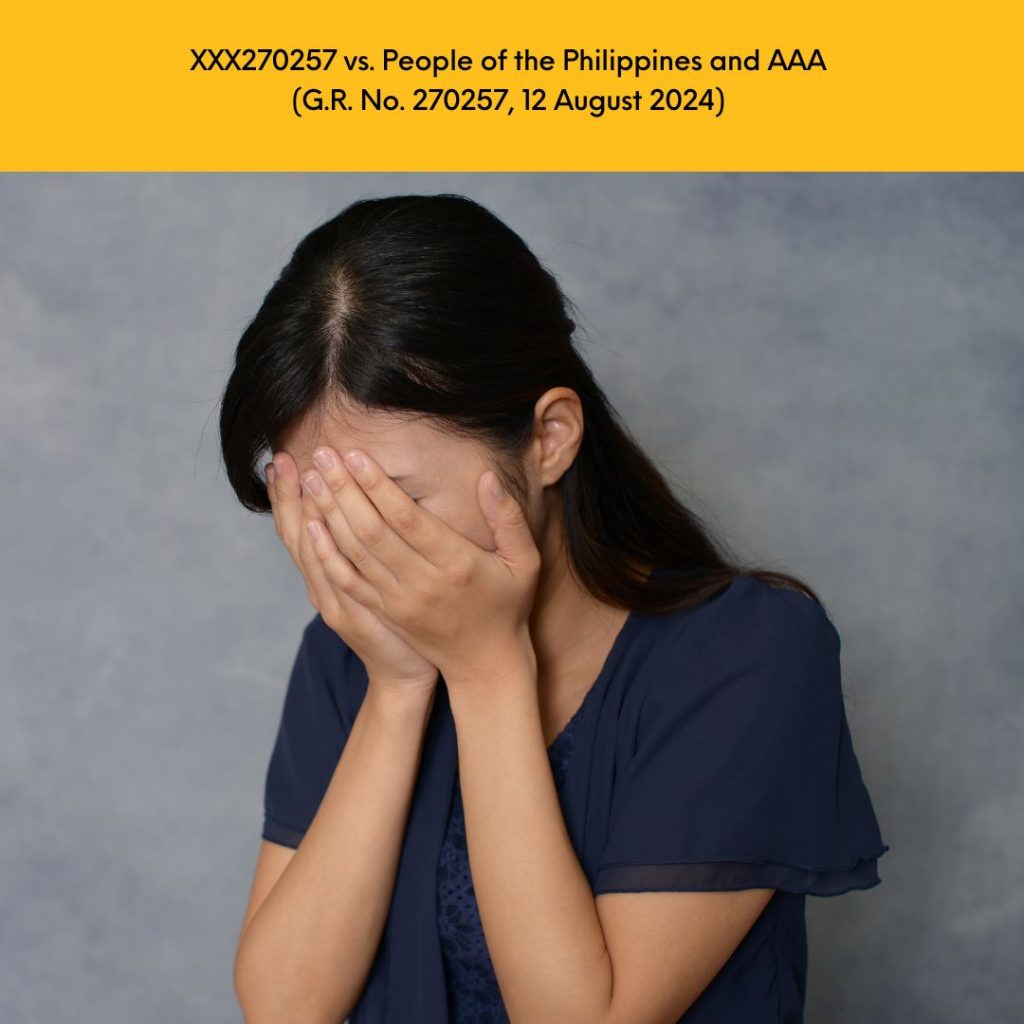
Published 7 March 2025, The Daily Tribune
The Anti-Violence Against Women and Their Children Act of 2004 (RA No. 9262) was enacted to protect women and children from various forms of violence, including physical, sexual, economic, and psychological abuse.
Psychological violence includes the infliction of mental or emotional suffering, such as intimidation, harassment, stalking, damage to property, public ridicule or humiliation, repeated verbal abuse and mental infidelity.
Given the highly sensitive nature of these cases, victims are often unable to undergo formal evaluation and assessment by a psychologist and face further trauma through the process. This poses a challenge in prosecuting an abuser for psychological violence.
In a line of recent cases, the Supreme Court clarified that a psychological report is not indispensable in proving psychological violence under RA No. 9262.
Rather, the victim’s testimony in court suffices to prove the element of emotional anguish. The decision of the Supreme Court in XXX270257 vs. People of the Philippines and AAA (G.R. No. 270257, 12 August 2024) provides valuable guidance.
In XXX270257 vs. People of the Philippines and AAA, the Court upheld the ruling of the lower court finding the petitioner guilty beyond reasonable doubt of Psychological Violence proven through testimonies of the victim and their daughter.
In his defense, the petitioner alleged that psychological violence was not proven. He argued that independent evidence in the form of a psychological evaluation or assessment is needed to support a finding of psychological violence suffered by the victim.
He further contended that the prosecution failed to effectively adduce a psychological report when it did not stipulate its presentation as evidence nor the presentation of a psychologist as a witness.
The Supreme Court reiterated that the absence of a psychological evaluation from an expert witness is inconsequential since it is not an element of the crime of Psychological Violence under RA No. 9262.
Nowhere in the law can such a requirement be inferred. In any event, the law does not actually require proof that the victim became psychologically ill due to the psychological violence done by her abuser.
Psychological violence is an indispensable element of violation of Section 5(i) of RA No. 9262. Equally essential is the element of emotional anguish and mental suffering, which are personal to the complainant.
To establish emotional anguish and mental suffering, jurisprudence only requires that the testimony of the victim be presented in court, as such experiences are personal to this party.
Hence, the testimony of the victim detailing her emotional ordeal suffices to prove her emotional anguish. The requirement of a psychological report was ruled to have no basis in law and jurisprudence.
For more of Dean Nilo Divina’s legal tidbits, please visit www.divinalaw.com. For comments and questions, please send an email to cad@divinalaw.com.

